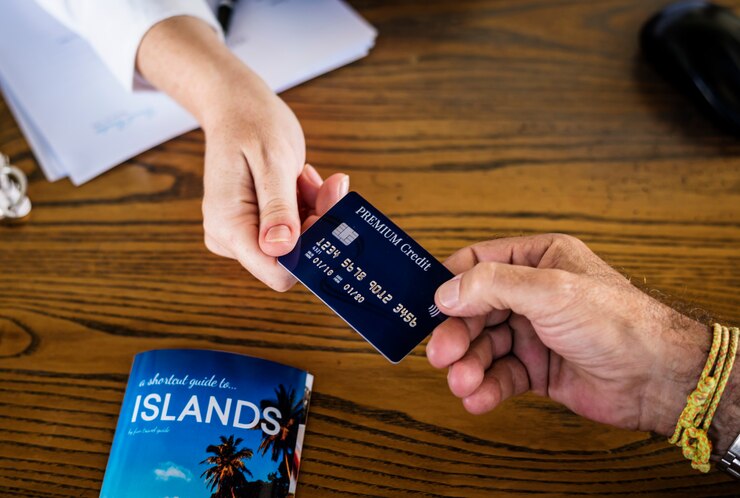Credit card debt is a prevalent financial predicament that millions of people encounter globally. Credit cards are convenient and flexible, but if they are not used wisely, there is a chance of building up debt. In order to achieve financial stability and freedom, it is essential to comprehend the causes of credit card debt, its effects on financial health, efficient debt management techniques, and actions toward debt elimination. We’ll explore the complexities of credit card debt in this extensive book, offering advice, strategies, and doable solutions to assist you in overcoming this financial obstacle.
Recognizing Credit Card Debt
The outstanding balance owing on a credit card account as a result of purchases, cash advances, fees, and interest is referred to as credit card debt. If you simply make minimum payments and carry a balance from month to month, interest builds up and, if left unchecked, can create a vicious cycle of debt.

Credit Card Debt: Its Causes and Effects
Spending Over Your Means: Whether it’s because of impulsive buys, rising living costs, or unforeseen needs, spending over your means is one of the main reasons people accumulate credit card debt.
High Interest Rates: Credit cards frequently have high annual percentage rates, or APRs, particularly for borrowers with poorer credit ratings. This results in significant interest costs being applied to outstanding balances.
The minimal Payments Trap: It is difficult to properly pay off debt when you just make the minimal payments, which lengthens the repayment period and raises interest expenses.
Financial events: If sufficient savings or emergency money are not available, unforeseen events like medical costs, auto repairs, or job loss may lead to the accumulation of credit card debt.
Psychological Factors: Stress, emotional spending, peer pressure, or the need for rapid satisfaction can all have an impact on overspending and the accumulation of credit card debt.
Credit Card Debt’s Effect on Financial Well-Being
High Interest Costs: If credit card debt is not managed well, interest will accrue over time and increase overall expenses and repayment terms.
Impact on Credit Score: Having large credit card balances in comparison to your credit limits can have a negative effect on your credit score and credit utilization ratio, which can later make it more difficult for you to get approved for loans, mortgages, or favorable interest rates.
Stress and Anxiety: Having a large debt load can lead to stress, anxiety, and emotional strain, which can negatively affect one’s mental and general health.
Limited Financial Flexibility: Making large credit card payments might make it more difficult for you to invest, save, or accomplish other financial objectives, which can lead to a vicious cycle of credit dependence.
Techniques for Managing Credit Card Debt Effectively
Expense tracking and budgeting: Make a thorough budget that lists all of your out-of-pocket costs, debt commitments, and income. Keep tabs on your expenditures to find areas where you may cut costs and devote more money to paying off debt.
Prioritize High-Interest loans: To save interest expenses and expedite debt reduction, concentrate on paying off high-interest credit card loans first. Think about employing the snowball or avalanche technique as a debt repayment plan.
Increase Payments: To lower principal balances more quickly and ultimately avoid interest costs, pay more than the minimum amount due each month. Whenever you have a windfall, bonus, or extra money, use it toward paying off debt.
Negotiate Reduced Interest Rates: To temporarily minimize interest payments, get in touch with your credit card issuers to ask about reduced interest rates, or look into balance transfer offers with promotional APRs.
Debt Consolidation: If you have several credit card bills, you might want to think about combining them into one loan or credit card that has better conditions or a lower interest rate. But be wary of balance transfer fees and their possible effect on credit ratings.
Create an Emergency Fund: To handle unforeseen expenses without using credit cards, create an emergency fund with three to six months’ worth of living expenses. This will assist you avoid accruing further debt.
Seek Credit Counseling: For advice on budgeting, financial literacy, and debt management techniques, speak with a non-profit credit counseling organization. They can offer customized debt repayment programs and engage in negotiations with creditors on your behalf.
How to Get Rid of Credit Card Debt
Establish Specific and Achievable Goals: Establish clear goals for the eradication of debt, such as paying off a particular sum by a deadline or becoming debt-free within a given period of time.
Make a Repayment Plan: Establish a systematic debt repayment plan that ranks high-interest loans first, establishes manageable monthly installments, and monitors your progress toward your objectives. To assist with debt payments, think about utilizing apps or calculators.
Remain Calm: Make a commitment to following your repayment schedule and refraining from making additional credit card purchases or needless spending that could impede your efforts. To reduce debt faster, adopt a frugal and disciplined mindset.
Celebrate Milestones: Acknowledge and recognize little accomplishments along the route, like paying off a credit card or hitting a particular debt reduction benchmark. Recognize your accomplishments and maintain your drive to keep moving forward toward debt independence.
Monitor and Adjust: To verify accuracy and monitor your progress, keep a close eye on your credit card bills, credit reports, and debt balances on a regular basis. If your income, spending, or financial objectives change, you should modify your repayment plan accordingly.
Developing Sound Financial Practices for the Future
Live Within Your Means: Adopt sensible spending habits by avoiding needless debt for non-essential expenditures, living within your means, and giving needs priority over wants.
Use Credit Wisely: Make responsible use of credit cards by charging only what you can afford to pay back, avoiding carrying large balances, and paying off balances in full each month.
Create a routine of saving money and investing it in long-term financial objectives, like housing, education, or retirement, to safeguard your finances and lessen your dependency on credit.
Educate Yourself: To make wise judgments and enhance your financial well-being, keep up-to-date on personal finance, debt management techniques, investment options, and financial literacy.
In summary
Financial health and well-being can be seriously hampered by credit card debt, but it can be efficiently managed and paid off with proactive tactics, self-control, and perseverance. You may take back control of your finances and attain better financial stability and independence by comprehending the origins and effects of credit card debt, putting debt management tactics into practice, establishing specific targets for debt reduction, and developing virtuous financial habits going forward. Recall that every step you take to reduce your debt will get you closer to a future free of debt and with financial independence.

